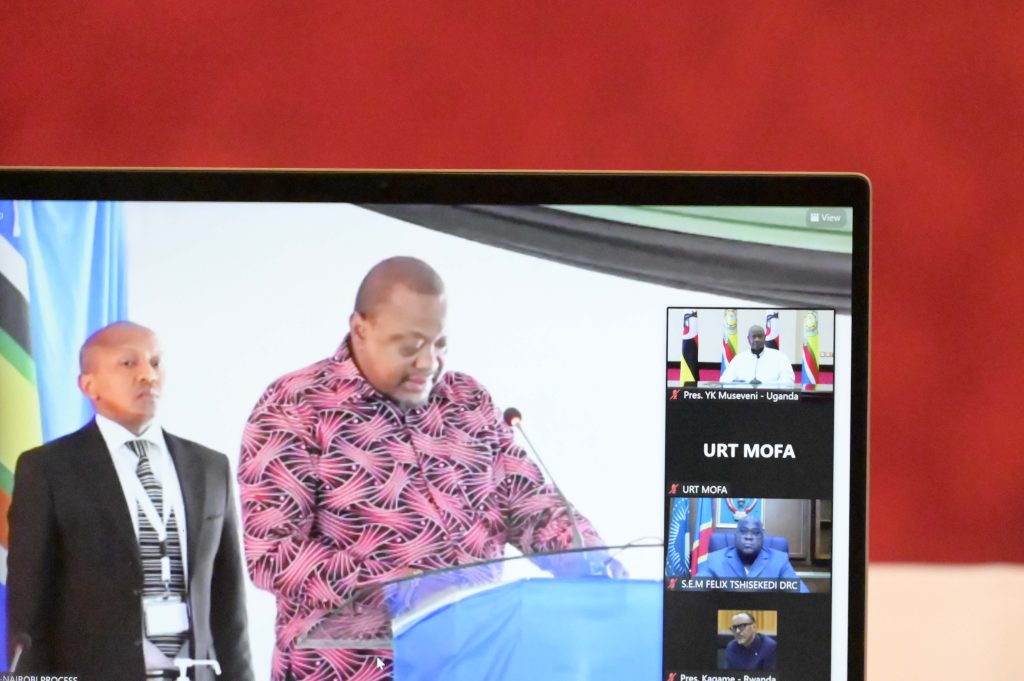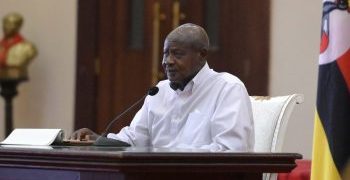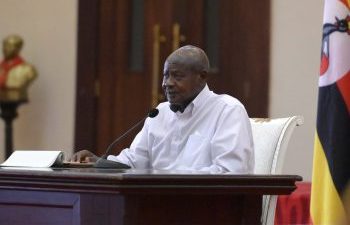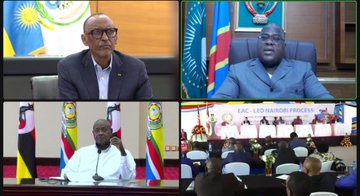President Museveni believes the insecurity in the Eastern Democratic Republic of Congo (DRC) has to a larger extent been perpetuated by the presence of illegal guns that have been circulating within the country since independence.
He was Monday addressing leaders of the East African Community (EAC) virtually during the EAC-Led Nairobi Process, on the restoration of peace and security in the Eastern Democratic Republic of Congo – Third Inter-Congolese dialogue that took place in Nairobi, Kenya.
Gen Museveni informed fellow leaders that many illegal guns still in the hands of foreign and local armed groups impede lasting peace in the eastern part of DRC and the entire region.
“The main problem is the presence of illegal guns in DR Congo. These illegal guns have been there almost continuously since Congo’s independence,” H.E Museveni said, adding that the guns currently being held by foreign armed groups like the Allied Democratic Forces-ADF from Uganda, the Entarahamwe of Rwanda and other groups from Burundi and Angola plus the internal Congolese groups such as the CODECO, M23, Maimai and others have all these years been killing Congolese and disturbing neighbours.

Speaking from experience, President Museveni noted that the internal groups of Congo that came from the weakening of the state authority of that area (Eastern DRC) for a prolonged period, can be handled by combining the political methods (dialogue) and if necessary, the military method if there is any group that is adamant and doesn’t want peace.
“The political means start with the dialogue. The dialogue should be preceded by a ceasefire where there is active fighting and disengagement of forces. The peaceful solution should be the outcome of the dialogue,” he said.
The President further called for harmonised efforts to bring lasting peace to the region.
“These armed groups causing insecurity can be defeated if we harmonise efforts. If any Congolese group doesn’t respect the formula reached after the dialogues, the combined resources of East Africa will be brought down on them. No force can defy the combined efforts of east Africa,” Gen Museveni stressed.
The President commended the efforts made by Operation Shujaa in Eastern DRC which has been going on for almost a year now and conducted by the combined forces of DR Congo and Uganda.
“These efforts in North Kivu and Ituri, have shown that we can deal with these groups despite the difficult terrain, the forests and so on. If the Congolese government agrees, they can invite visitors and visit where we are operating and see what can be achieved,” H.E Museveni added.
However, according to the President, the victim communities and the refugees who reside in the areas that have been occupied by terrorists for all this time should not be left out in efforts to pacify the region.
He said the Congolese communities such as the Bakonjos-Banande of Uganda and Congo, the Bahema-Banyoro, the Alurs, Lugbaras and Kakwas in Congo and some parts of West Nile in Uganda, the Bamba, the Banyarwanda of Kinyarwanda speaking people in Congo, Rwanda and Uganda are the same and know each other.
“Those people have been suffering and should be consulted because their land has been occupied by these terrorists for all this time. This is not fair. Here in Uganda, we have got 480,000 refugees,” H.E Museveni said, adding that with 1.6 million refugees, Uganda now is the richest country in refugees in Africa and is number 4 in the whole world in the wealth of refugees, something he said, “is not fair and not necessary.”

The third Inter-Congolese dialogue of the Nairobi Peace Process is aimed at accelerating the ongoing regional efforts to attain sustainable peace and security in Eastern DRC.
H.E Museveni informed the dialogue that Uganda remains committed to a quick and permanent solution to the conflict in the Eastern Democratic Republic of Congo.
According to the East African Community secretariat, the Inter-Congolese dialogue has been re-energized and incorporates consultations amongst armed groups in Eastern DRC, local community leaders, civil society and other relevant stakeholders, to find sustainable solutions to the protracted security situation.
The Inter-Congolese dialogue will run up to 3rd December and involve consultations amongst armed groups in Eastern DRC, local community leaders, civil society and other relevant stakeholders, to find sustainable solutions to the security situation.










